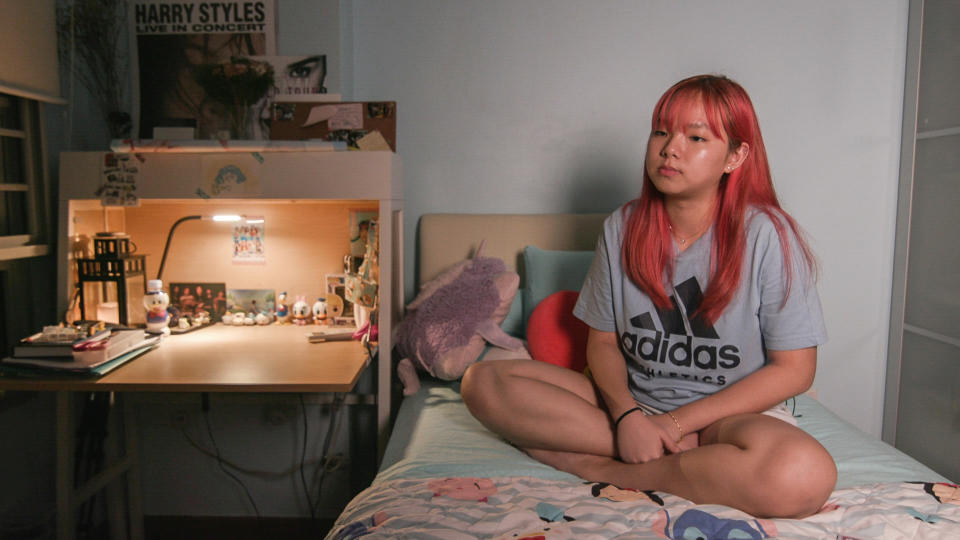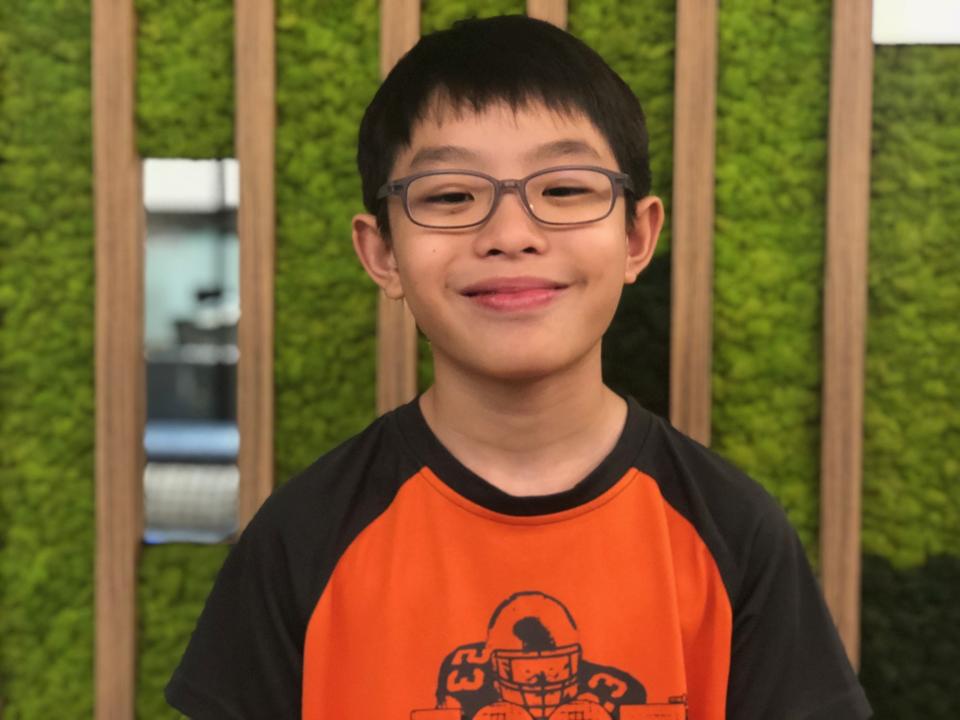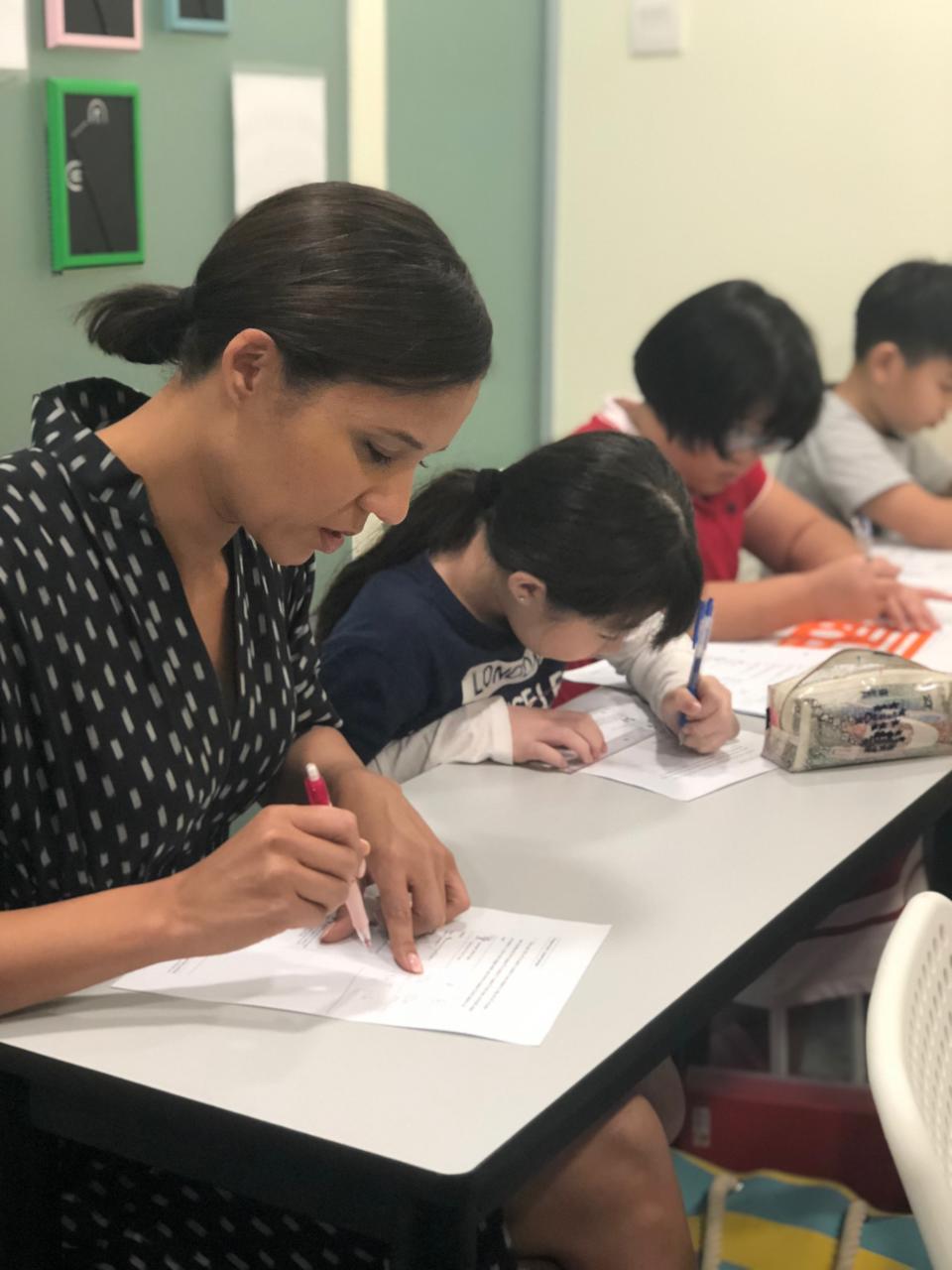'A fear of failure': 12-year-old's insane routine before and after school
Singapore boasts the best education system in the world – but just how much of a toll is it taking on its young students?
Singapore has some of the highest achieving students in the world when it comes to reading, maths and science, according the the Programme for International Student Assessment (PISA), which measures students across the world through a standardised test.
But children as young as 12 are feeling the pressure to maintain good grades, with some studying from 7am to 9pm each day.
SBS program Dateline visited Singapore with a dozen Australian high school teachers to uncover why it had the best education system, but discovered some students had a lack of school and life balance, spending most of their days packed into private tuition centres.
SBS presenter Janice Petersen explained to Yahoo News Australia that Singapore separated teenage students into three categories once they reached high school.
“At 12 years of age children sit a PSLE exam. It’s a big test that determines what stream you go into,” she said.

“There is the top stream for the academically gifted, then the normal stream and the technical stream for lower performers. They are put into a technical school which has an emphasis on practical skills, trades like plumbing and hospitality.”
However these streams are causing anxiety in some students who feel the pressure to keep up.
Despite her grades putting her in the top academic stream, 17-year-old Charmaine was crippled by stress.
“I kind of developed a fear of failure. It did not bring the best out of me. I was diagnosed with anxiety and depression. I got really low when it felt like I would never have a future,” she told Dateline.
Charmaine ended up dropping down to a technical school level where she says her life turned around.
“She is a lot happier, less stressed out and still feels she is on a good career path. There’s not this emphasis of getting these perfect scores,” Petersen told Yahoo News Australia. “Charmaine feels there is a stigma around not doing well. She’s hoping that sort of thing changes.”
A day in the life of a 12-year-old student
Appearing on the Dateline program, 12-year-old Xuan is preparing for the PSLE test to decide what stream he will be put into.
“He gets up before 6am and is off to school around 7 or 7.30am and crams in a little bit of study before school,” Petersen said.
“He gets home about 1.30pm and has some lunch before going off to private tuition after school. He’s there for a few hours studying maths and Chinese and comes home for dinner around 6pm.
“Then there is more study until about 9pm and he has a stack of PSLE exam papers on his desk in him bedroom.”
Petersen said when she asked Xuan what he did to relax, he said he would spend time with his friends until going to bed about 11pm.
“He says he can now play with his friends (when) it’s 9pm,” she said. “They chat on the computer and play Fortnite and that’s his idea of playing with friends.”

Petersen said Xuan told her he was exhausted, especially as studying ramps up in the lead up to the PSLE test and his tuition becomes more intense.
“He was incredibly impressive, very bright, very articulate and in quite a startling way,” she said.
“We’re there with the SBS Dateline program talking to a 12-year-old and he was talking to the cameraman about the Colombian prison system. His interests were just so wide and varied ... He has the interests of somebody in university.”
Xuan’s mother has since reached out to Yahoo News Australia to clarify his routine.
She said he does not study before school and wakes at 6.40am and also attends science and drama classes after school on a Friday.
Parents also feeling the pressure
Petersen said parents were putting stress on children to get good grades as they were also feeling the pressure from other parents.
“From what I understood about 70 per cent of school children receive tuition and a lot of parents’ income is being channelled into their children and this dream of them achieving perfect scores,” she said.
“Definitely that pressure on children is coming from parents, but parents feel pressure from other parents as everyone is taking these private tuition classes to give their children the best possible start.
“Singapore ended up having a billion-dollar industry around tuition.”

Petersen said she visited a shopping centre where there was wall-to-wall tuition centres packed with parents. Shopfronts are full of tables and chairs and kids crammed in there revising their school work to get to the top of their game.
“On a Saturday morning it’s just packed with kids and parents and backpacks. I didn’t see one bit of green space where children were running around but in Australia often the roads are choked on a Saturday morning with mums and dads driving kids to sport events.
“All weekend yes kids are getting coached but not for sport but to get better grades at school.”
Inside Singapore classrooms
Petersen said the Australian teachers who visited Singapore thought there was too much study for students, but were impressed by the classrooms they entered.
“The facilities were incredible, there were kitchens and retail shops set up like a convenience store or clothing store. Children learn in those environments and it’s very practical-based learning and that was super impressive,” she said.
“But I think a lot of the teachers were scratching their heads about why there was a need for additional tuition when the school system has been so well planned and thought out.
“I guess that pressure isn’t coming necessarily from the ministry of education, but parents and the culture of academic excellence.”

Petersen said the classrooms were about double the size of those in Australia, with a teacher holding a microphone at the front of the class addressing about 40 students.
“The students have to observe and absorb a lot,” she said.
Petersen says while currently the country follows the three-stream system, it was looking to scrap it in favour of a system where students can pick different subjects with different degrees of difficulty.
“There would be a larger spread of abilities which is a bit more reflective of how we go about our business in the world anyway once we graduate from university,” she said.
The full Dateline report, Why Singapore’s Top of the Class, will air on SBS on Tuesday, October 15, at 9.30pm.
Do you have a story tip? Email: newsroomau@yahoonews.com.
You can also follow us on Facebook and Twitter, download the Yahoo News app from the App Store or Google Play and stay up to date with the latest news with Yahoo’s daily newsletter. Sign up here.


